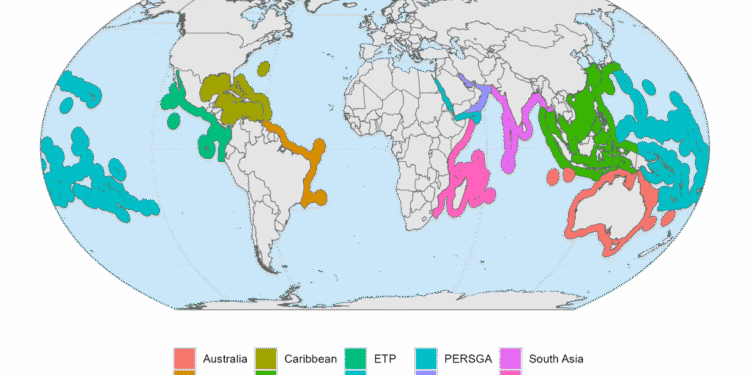The Global Coral Reef Monitoring Network (GCRMN) plays a vital role in the conservation and management of coral reef ecosystems. Here are some key advantages of this initiative:
1. Standardized Data Collection
GCRMN employs standardized methodologies for data collection, allowing for consistent and comparable data across different regions. This uniformity helps in accurately assessing coral reef health globally.
2. Comprehensive Global Assessment
By aggregating data from multiple sites, the GCRMN provides a holistic view of the status of coral reefs worldwide. This comprehensive assessment helps identify trends, threats, and areas requiring urgent attention.
3. Enhanced Local Capacity
The network builds local capacities by training communities and organizations in effective monitoring techniques. This empowerment fosters local stewardship and enhances the ability to manage coral reefs sustainably.
4. Informed Decision-Making
The data and insights generated by the GCRMN support policymakers and stakeholders in making informed decisions regarding coral reef conservation and management strategies. This evidence-based approach leads to more effective interventions.
5. Promoting Collaboration
GCRMN fosters collaboration among governments, NGOs, researchers, and local communities. By bringing diverse stakeholders together, it encourages the sharing of knowledge, resources, and best practices in coral reef management.
6. Raising Awareness
The GCRMN plays a crucial role in raising public awareness about the importance of coral reefs and the threats they face. Increased awareness can lead to stronger advocacy for conservation efforts at local, national, and global levels.
7. Long-term Monitoring
The GCRMN supports long-term monitoring of coral reefs, allowing for the detection of changes over time. This long-term perspective is essential for understanding the impacts of climate change, pollution, and other stressors.
8. Economic Benefits
Healthy coral reefs contribute significantly to local economies through tourism and fisheries. By promoting the health of these ecosystems, the GCRMN indirectly supports livelihoods and economic sustainability in coastal communities.
9. Biodiversity Conservation
Coral reefs are hotspots of biodiversity. The GCRMN’s efforts to monitor and protect these ecosystems help conserve countless marine species, contributing to overall marine biodiversity and ecosystem resilience.
10. Adaptive Management Strategies
The insights gained from monitoring efforts enable adaptive management strategies. As conditions change, GCRMN can inform necessary adjustments to conservation practices, ensuring they remain effective in the face of evolving challenges.
Conclusion
The Global Coral Reef Monitoring Network is instrumental in the conservation of coral reefs. Through its comprehensive data collection, local capacity building, and promotion of collaboration, the GCRMN enhances our ability to protect these vital ecosystems for future generations. Its advantages extend beyond coral reefs, supporting broader environmental health and economic stability in coastal regions.
















